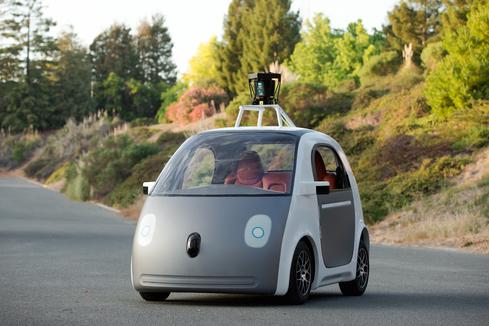
The five-year research project will draw on one million anonymous eye scans which are held on Moorfields’ patient database, with the aim to speed up the complex and time-consuming process of analysing eye scans.

Scientists from Google and the University of Basque Country in Spain believe they have cleared some of the barriers to more complex and useful quantum computers.

Google have released their latest monthly report on the antics of their self-driving car, and it appears to include a rather curious note on appropriate honking.

The IMAX VR camera will use Google Jump to create 3D, 360-degree content.

Google makes several announcements, including its mobile virtual reality platform Daydream, that reveal its long-term strategy to bring VR to the masses.

It seems that the D-Wave Computer does work, and the theory is that the hardware is 3,600 times faster than other supercomputers.

According to a report at Forbes, Google recently filed a patent for an electronic device that would be injected directly into the user’s eyeball. As described in the patent filing, the “intra-ocular device” includes an electronic lens that is injected within a fluid which solidifies after application.

Quantum computing is set to revolutionize our world, and major players (such as Google, NASA, and Lockheed Martin) are turning to one company for their quantum needs: D-Wave.

Google Glass perhaps didn’t receive the earth-shattering response the company – and world – had expected. However, a proposal that Samsung appears to have in the works could be the augmented reality wearable tech everybody is holding out for.

The U.S. National Highway Traffic Safety Administration (NHTSA) has announced that in the government’s eyes, each of Google’s autonomous vehicles will be treated as if they were an ordinary driver.

Google Fiber today said it will provide free Internet access at gigabit speeds to residents in affordable housing. Google Fiber was already providing free Internet in public housing, but speeds were limited to 5Mbps downloads and 1Mbps uploads.

Plane-like drones could someday beam 1Gbps to 10Gbps Internet down to Earth. Google has yet another Internet-in-the-sky program in the works. This one is called "Project Skybender," and it aims to outfit drones with millimeter wave transceivers—radios that work in a slice of the spectrum that could be used in next-generation "5G" networks.

Dieter Zetsche, chairman of the board for Daimler AG and head of Mercedes-Benz, came back from a recent visit to Silicon Valley with the impression that Google and Apple are farther along with their automotive projects than he had assumed.

Google has been sharing more details about its quantum computing project, which it runs in partnership with NASA.

Last month, Google announced that it will invest in Africa